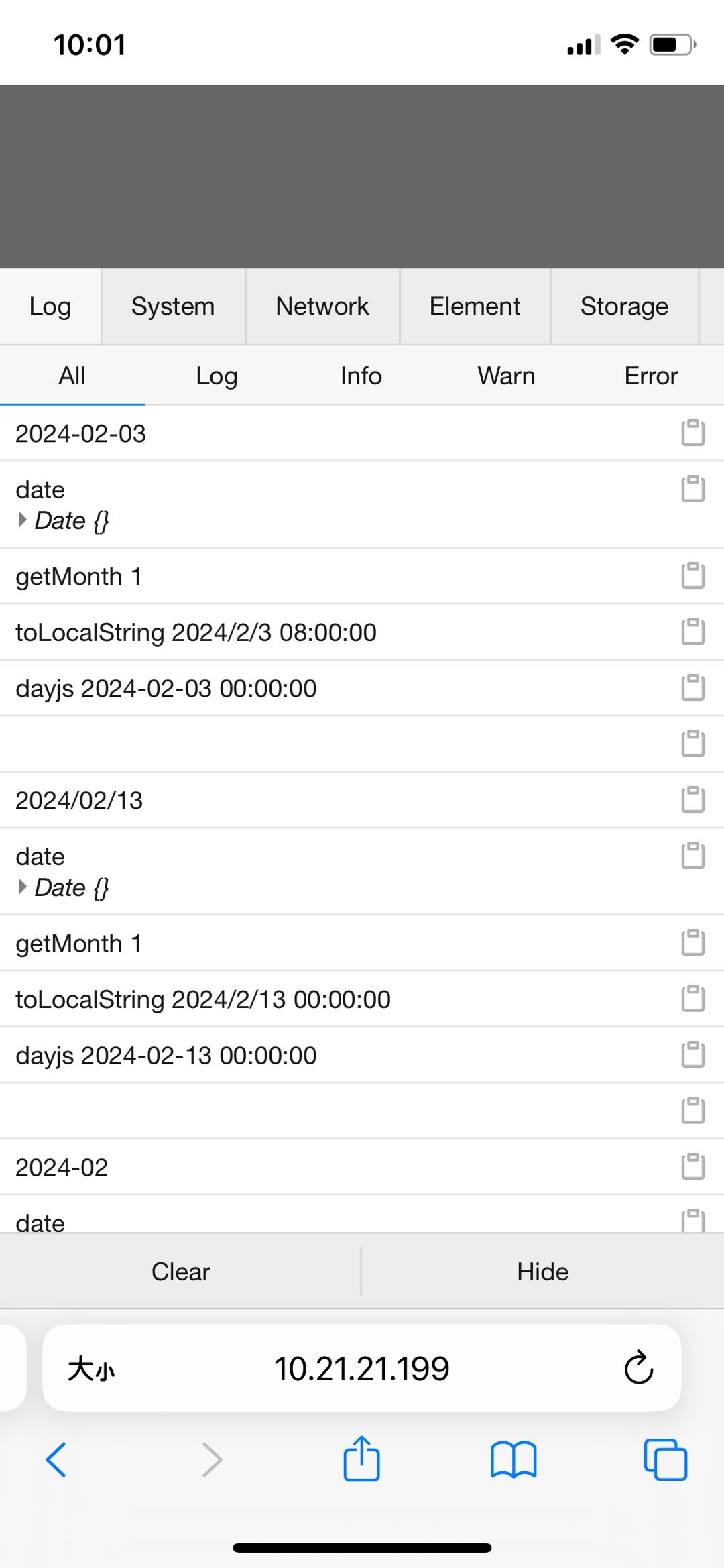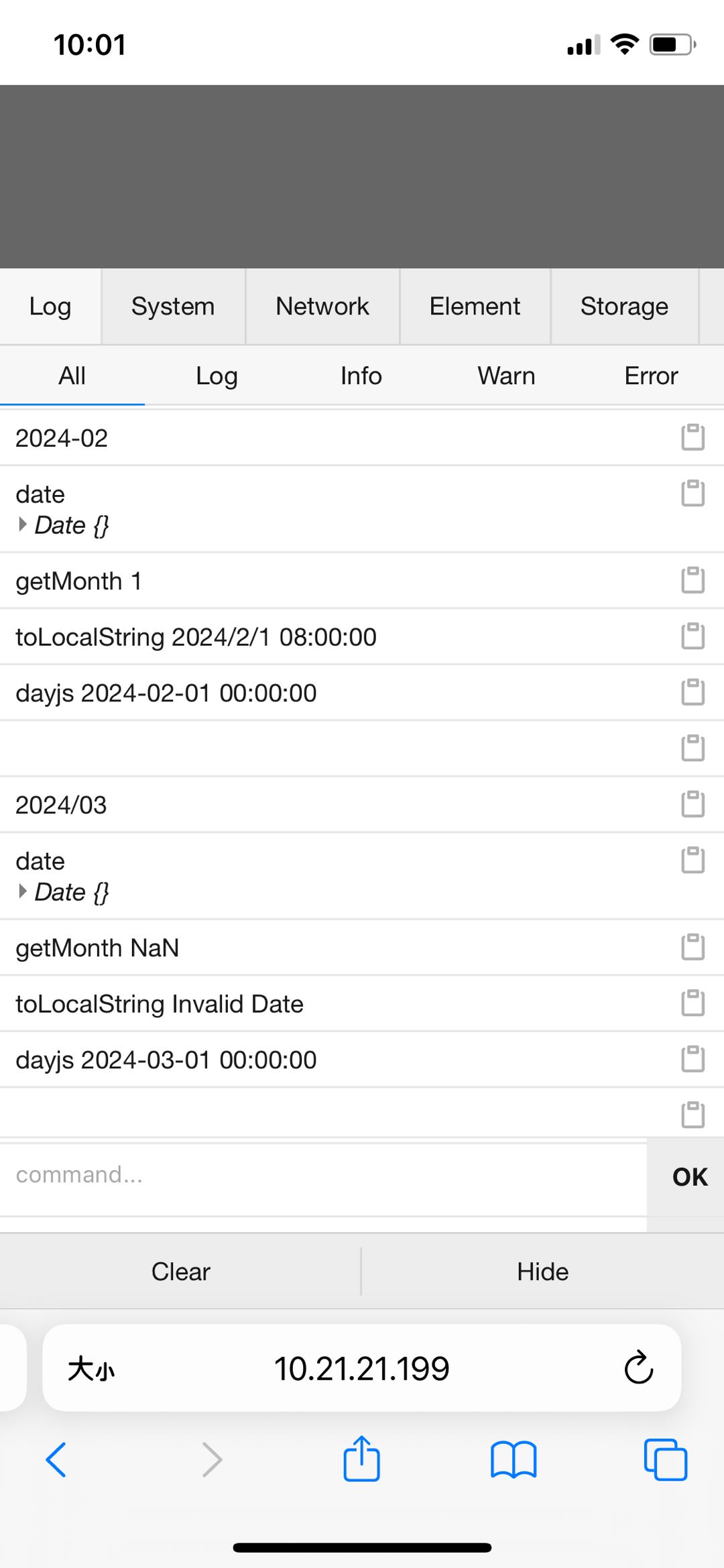开发过一段时间 h5 的同学,都应该知道,在 iOS 中,要将横岗-改为/的操作。但现在遇到了另一个问题,像 2024/03 这种没有“日”的日期,在 iOS 中,使用 new Date('2024/03') 会转换失败。
我们用几种日期格式来验证下:
const list = ["2024-02-03", "2024/02/13", "2024-02", "2024/03"];
list.forEach((str) => {
const date = new Date(str);
console.log(str);
console.log("date", date);
console.log("getMonth", date.getMonth());
console.log("toLocalString", date.toLocaleString());
console.log("dayjs", dayjs(str).format("YYYY-MM-DD HH:mm:ss"));
console.log("\n");
});
看下在 iOS17.3.1 的 safari 浏览器中得到的结果:


上面的四种日期格式,最后一种使用new Date()会转换失败。最终确实证实了我的想法。大家在使用时尤其要注意这一点。
上面的样例中,我们也发现了,使用 dayjs() 能转换成功。是因为它并不是把参数直接传入 Date() 中,而是把参数解析出年月日时分秒之后,再初始化的。
https://github.com/iamkun/dayjs/blob/2076da970047c6e0a22c8d4243a42d52833a5df2/src/index.js#L63
const parseDate = (cfg) => {
const { date, utc } = cfg;
if (date === null) return new Date(NaN); // null is invalid
if (Utils.u(date)) return new Date(); // today
if (date instanceof Date) return new Date(date);
// 如果传入的参数字符串,则通过正则,将年月日时分秒等都解析出来
if (typeof date === "string" && !/Z$/i.test(date)) {
const d = date.match(C.REGEX_PARSE);
if (d) {
const m = d[2] - 1 || 0;
const ms = (d[7] || "0").substring(0, 3);
if (utc) {
return new Date(Date.UTC(d[1], m, d[3] || 1, d[4] || 0, d[5] || 0, d[6] || 0, ms));
}
return new Date(d[1], m, d[3] || 1, d[4] || 0, d[5] || 0, d[6] || 0, ms);
}
}
return new Date(date); // everything else
};
在 dayjs 中,如果传入的参数字符串,则通过正则表达式,将年月日时分秒等都解析出来。同时也能看到d[3](年月日中的日)在没有值时,会给个默认值。